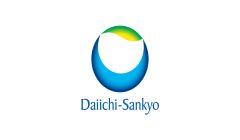Objective tracking data combined with cohort data to drive medicine of the future

Tohoku University Tohoku Medical Megabank Organization, Daiichi Sankyo, Takeda Pharmaceutical and MICIN announced that they have started a joint research agreement for the application of a wearable tracking device. A wearable tracking device will be worn by 2,000 people to acquire data on people’s lifestyle habits for an extended period. The acquired data will be analyzed in relation to the information accumulated through the Tohoku Medical Megabank Project cohort studies.
This research is also expected to serve as a model case for the era of personalized healthcare based on wearable tracking devices and further drive the launch and utilization of similar platforms in Japan and abroad.
The collaborative research project will begin recruiting research participants this fall. This research tracks long-term lifestyle habits such as sleep status, heart rate, and activity level, which are difficult to accurately ascertain through self-reporting. The research will combine these data with existing data from the Tohoku Medical Megabank Project cohort studies, such as health checkups, clinical and MRI imaging data and genomic information, and is expected to lead to the further creation of innovative drugs and medical technologies. This joint research combines objective assessments of sleep status and physical activity with data derived from the existing cohort study, which is expected to drive innovative pharmaceutical research such as drug discovery toward the realization of precision medicine and personalized healthcare.
Background
Wearable tracking devices that can be worn on the body like a wristwatch to obtain biometric information on a daily and continuous basis are becoming increasingly popular around the world, both for general and medical use. Wearable tracking devices in general incorporate sensors that acquire information such as heart rate and body movement (acceleration). By analyzing these data, information including the wearer's sleep conditions, daytime activity, and stress levels can be easily and objectively obtained as quantitative data on a continuous basis.
Studies have shown that lifestyle habits can affect an individual's health. In the current cohort study conducted by ToMMo, a variety of information has been collected from participants to identify the complex combination of environmental factors, of which lifestyle habits are a major component, and genetic factors, represented by genomic information, that lead to the onset of disease. The cohort study obtains information on lifestyle habits by means of a survey to be filled out by participants. While the information obtained from the survey is important, this information is based on the subjective responses of individual participants, which limits the ability to conduct objective and quantitative research.
Against this background, ToMMo, the Japan Pharmaceutical Manufacturers Association (“JPMA”), and MICIN conducted a pilot study using a wearable tracking device that started in November 2020. Wearable tracking devices are known for their ability to measure data including detailed activity and sleep time. The pilot study enrolled approximately 30 participants and demonstrated that it is possible to accumulate data by having participants wear a tracking device in a specified manner for at least one month, opening the prospect of obtaining more detailed and objective lifestyle data over a longer period. The JPMA also included the need for the accumulation of detailed lifestyle data using wearable tracking devices in its recommendations for 2021.
Through this joint research, a wearable tracking device will be loaned to research participants for a period of one year to accumulate detailed and objective lifestyle data over an extended period. The joint research will add new value to the data accumulated by the Tohoku Medical Megabank Project and further accelerate its application to innovative medical research, including drug discovery aimed at achieving precision medicine and personalized healthcare of the future. It will also ensure an environment in which the dissemination of information through wearable tracking devices is made possible to welcome the era of personalized healthcare.

Subscribe To Our Newsletter & Stay Updated